6-0017 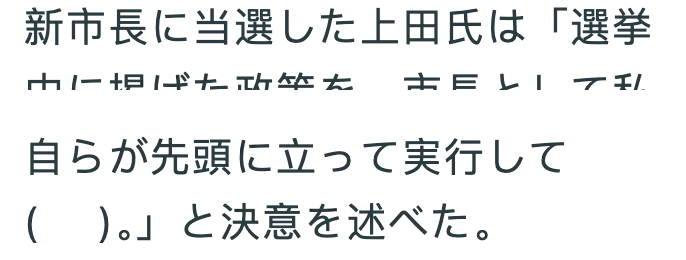

6-0017 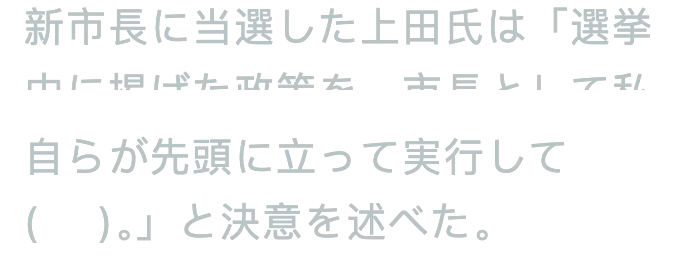

- I will take the lead as mayor in implementing the policies proposed in the election. The newly elected Mayor Ueda expressed this determination.
- Mairimasu: Self-effacing phrase for "行く" and "来る".
- 願います:期望,盼望
- Itashimasu: A self-effacing term for "する".
- Dedai Shimasu: A self-effacing term for "もらう".
7-0018 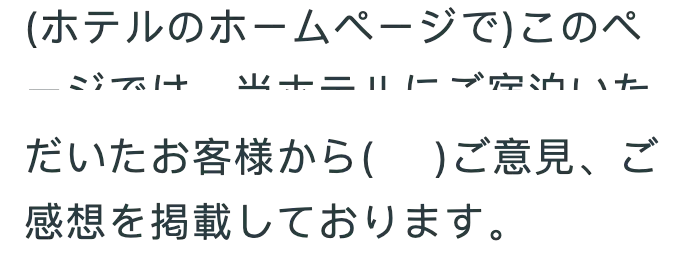

7-0018 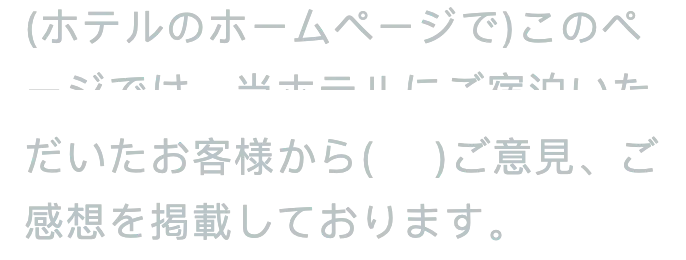

- (This page (on the hotel's homepage) contains comments and thoughts from guests who have stayed at the hotel.
- Nasaru: honorific for "する".
- 差し上げる (さしあげる) : to lift, to raise, to (あげる的自谦语) to present, to honor
- Dedicate (ちょうだい)する:receive, receive
- おいでくださった: to go, to attend, to come
8-0019 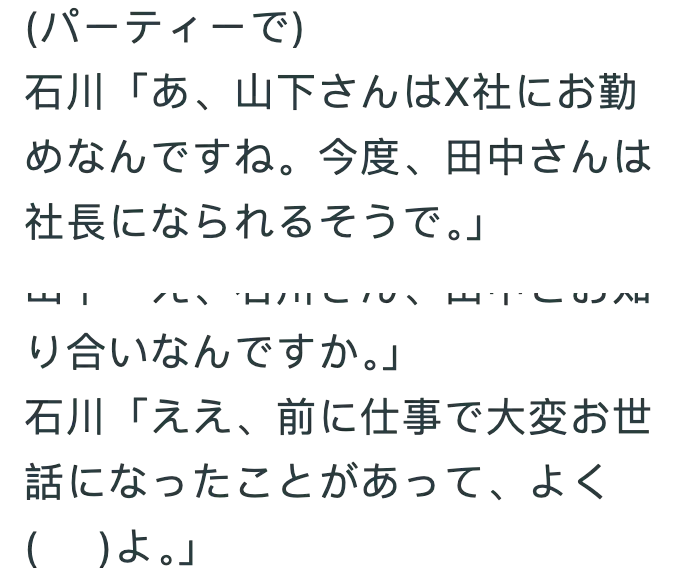

8-0019 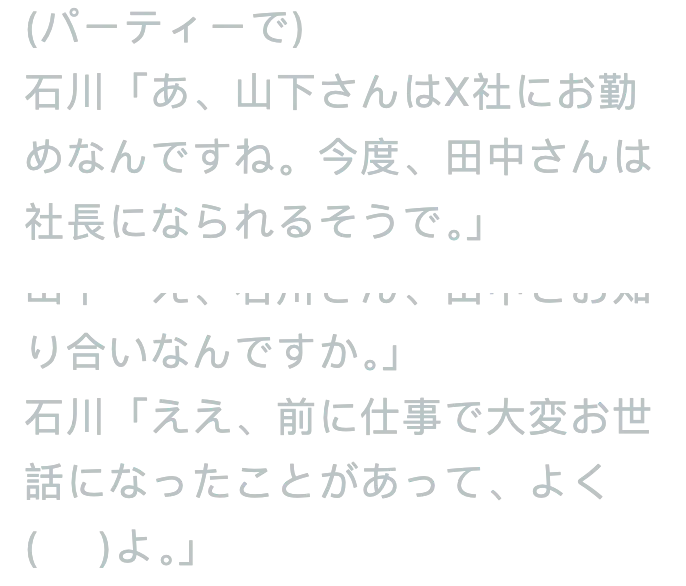

- (at the party)
- Ishikawa: Ah, Mr. Yamashita works for X-Society, right? This time, I heard that Mr. Tanaka is going to be the president.
- Yamashita: Well, does Mr. Ishikawa also know Mr. Tanaka?
- Ishikawa: Yes, I remember him because I used to receive a lot of help from him at work.
- This question examines honorific usage.
- 知っていただけます:Please understand. 「~ていただけます」:Indicates that you ask the other person to do something, can you please...?
- じ上げます: know. A self-effacing expression for "know".
- お目にかかれます:面識. A modest way of saying "会う".
- お会いになっています:Meet. The honorific for "会う".
9-0020 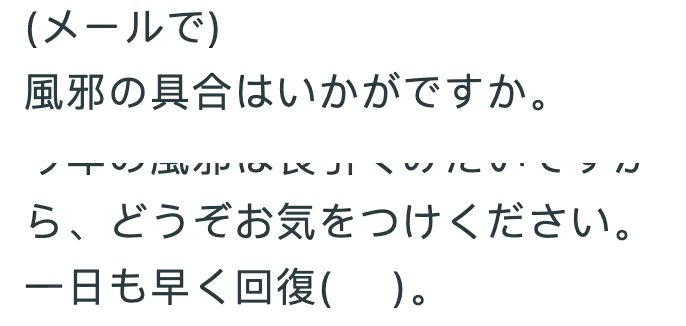

9-0020 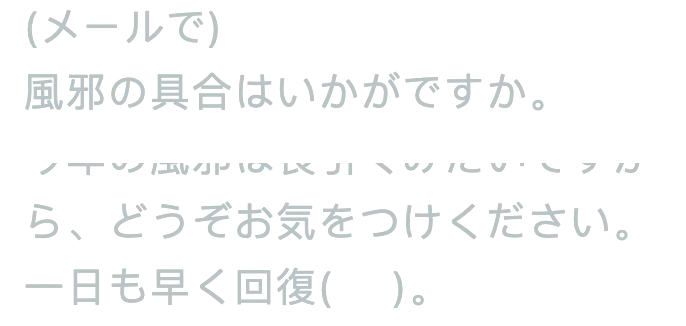

- (in the mail)
- How's your cold?
- You seem to have been sick for a long time this year, so please do take care of yourself.
- I wish you a speedy recovery.
- されますように:"回復される" is the honorific for "回復する", and "ように" means to wish or hope. This option means: I wish you a speedy recovery.
- 願ってはどうですか:This option means: how about wishing you a speedy recovery.
- いたたたく思います:「いたす」is the self-effacing form of 「する」, and it is a wrong usage to use it for the other person here.
- していらっしゃるでしょうか:「いらっしゃる」is the honorific for 「いる」, and this option is converted into a general expression, i.e. "早く回復しているでしょうか", are you on the fast track to recovery? does not match the meaning of the question.
10-0021 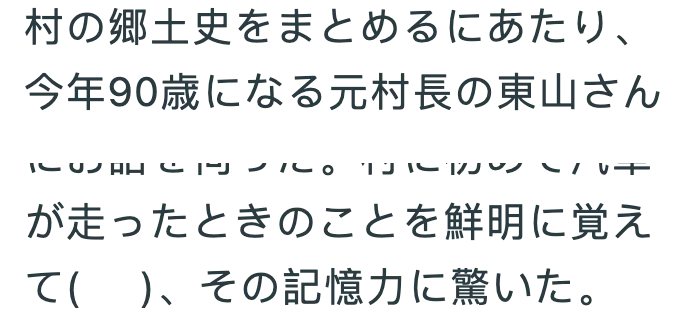

10-0021 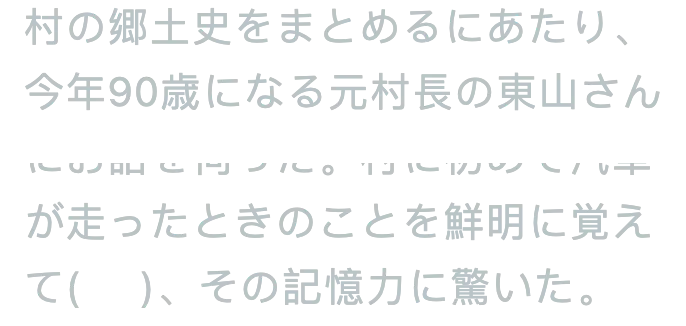

- While collecting the village's vernacular history, we interviewed Mr. Higashiyama, the original village head, who is 90 years old this year. His memory is amazing as he vividly remembers the first time the village was opened to traffic.
- おいでになる:Here is the usage of a supplementary verb, which is attached to "動詞て形" to show the honorific of "ている".
- 差し上げ: "差し上げる" is the self-effacing form of "あげる".
- Mai-ri: "Mai-ru" is a self-effacing expression for "行く・來る".
- 申し上げ: "申し上げる" is the self-effacing word for "言う".










